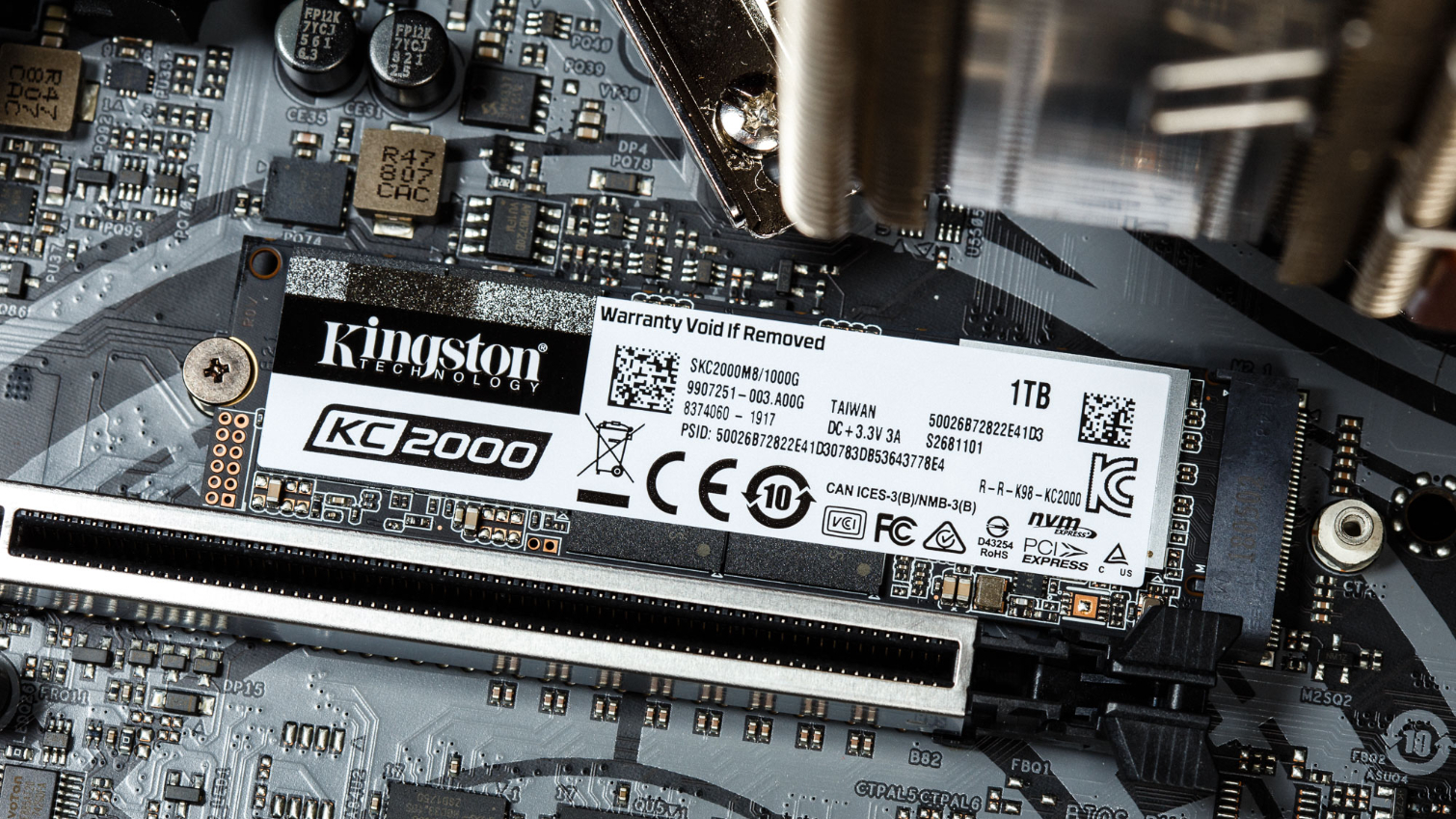Tom's Hardware Verdict
Kingston’s KC2000 keeps up with the most intensive consumer workloads, but also boasts respectable endurance figures, a five-year warranty, software package, and a full security suite, making it a safe choice if you're looking for security and reliability, too.
Pros
- +
Solid performance
- +
Software package support
- +
Respectable endurance
- +
Black PCB
- +
Five-year warranty
Cons
- -
Peak performance is a bit conservative
- -
Ugly sticker detracts from aesthetics
Why you can trust Tom's Hardware
Toshiba’s 96-Layer Flash Goes Mainstream
Kingston designed its new KC2000 SSD for gamers, prosumers, and corporate users alike. Unlike most SSDs on the market, the KC2000 combines top-notch security through encryption techniques with solid performance that spans up to 3.2/2.2 GB/s.
That combination is possible because the KC2000 is one of the first SSDs with Toshiba’s new BiCS4 96L 3D TLC NAND and Silicon Motion’s latest SM2262EN NVMe controller. This, along with a five-year warranty and generous helping of endurance, positions Kingston’s KC2000 as a top pick if you are looking for a secure and fast M.2 NVMe SSD.
Kingston’s first NVMe SSD was the top dog of the SSD world when it came to market. The HyperX Predator featured a Marvell NVMe controller and planar (2D) MLC flash that provided the best PCIe 2.0 x4 performance available. Moving on with the times, however, competitors started to catch up and surpass the Predator. That's when Kingston released the KC1000, but it wasn't all that special. It surely provided more performance than the previous model courtesy of Phison’s older E7 controller and 15nm planar TLC flash but fell short compared to Samsung's 3D flash-powered NVMe SSDs. The KC1000 came to market too late and lacked the 3D flash it needed to compete with the best.
Now, in 2019, like Kingston did with the HyperX Predator all those years ago, it is coming to market with the latest technologies available, like the latest NVMe controller from Silicon Motion, the SM2262EN, and latest 96L BiCS4 TLC from Toshiba.
The SM2262EN has proven to be one of the fastest consumer controllers, notching impressive wins through both our synthetic and application testing. Toshiba’s BiCS3 NAND has been similarly impressive, but the KC2000's newer BiCS4 should serve up great performance, too: it offers faster program times and lower read latency due to its Toggle 3.0 interface. This new flash also improves efficiency, as we saw in our Toshiba XG6 review.
Specifications
| Product | KC2000 250GB | KC2000 500GB | KC2000 1TB | KC2000 2TB |
| Pricing | $62.40 | $114.40 | $201.50 | $410.80 |
| Capacity (User / Raw) | 250GB / 256GB | 500GB / 512GB | 1000GB / 1024GB | 2000GB / 2048GB |
| Form Factor | M.2 2280 | M.2 2280 | M.2 2280 | M.2 2280 |
| Interface / Protocol | PCIe 3.0 x4 / NVMe 1.3 | PCIe 3.0 x4 / NVMe 1.3 | PCIe 3.0 x4 / NVMe 1.3 | PCIe 3.0 x4 / NVMe 1.3 |
| Controller | Silicon Motion SM2262EN | Silicon Motion SM2262EN | Silicon Motion SM2262EN | Silicon Motion SM2262EN |
| DRAM | DDR3L | DDR3L | DDR3L | DDR3L |
| NAND Flash | Toshiba BiCS4 96L TLC | Toshiba BiCS4 96L TLC | Toshiba BiCS4 96L TLC | Toshiba BiCS4 96L TLC |
| Sequential Read | 3,000 MB/s | 3,000 MB/s | 3,200 MB/s | 3,200 MB/s |
| Sequential Write | 1,100 MB/s | 2,000 MB/s | 2,200 MB/s | 2,200 MB/s |
| Random Read | 350,000 IOPS | 350,000 IOPS | 350,000 IOPS | 250,000 IOPS |
| Random Write | 200,000 IOPS | 250,000 IOPS | 275,000 IOPS | 250,000 IOPS |
| Encryption | AES-256 / Opal 2.0 / eDrive | AES-256 / Opal 2.0 / eDrive | AES-256 / Opal 2.0 / eDrive | AES-256 / Opal 2.0 / eDrive |
| Endurance | 150 TBW | 300 TBW | 600 TBW | 1,200 TBW |
| Part Number | SKC2000M8/250G | SKC2000M8/500G | SKC2000M8/1000G | SKC2000M8/2000G |
| Warranty | 5-Years | 5-Years | 5-Years | 5-Years |
Kingston’s KC2000 is available in capacities of 250GB through 2TB at roughly $0.20 to $0.25-per-GB. Sequential performance weighs in at up to 3.2/2.2 GB/s of read/write throughput, while 4K random performance comes in at up to 350,000/275,000 read/write IOPS.
Those fast write speeds could wear an SSD out relatively fast, but the KC2000's endurance figures, which range from 150TBW up to 1,200 terabytes written (TBW), have you covered. The Kingston KC2000 also comes with a five-year warranty and free technical support.
Get Tom's Hardware's best news and in-depth reviews, straight to your inbox.
The KC2000 also has top-notch security mechanisms that stick out from the crowd. The self-encrypting drive supports a full security suite with end-to-end protection for your data with all major software vendors through the use of 256-bit AES hardware encryption. Unlike most of its competitors, Kingston’s encryption is not only compatible with TLC Opal 2.0 security management software such as Symantec, McAfee, and WinMagic, but the drive is also eDrive compliant, meaning it is fully compatible with Windows BitLocker, too.
Software and Accessories
Just like many other companies, Kingston provides its customers with a few software utilities. Kingston includes a key for Acronis True Image HD, a cloning and disc backup software, and its Kingston SSD Manager toolbox. The toolbox lets you monitor your drive’s health, view identification information, update the firmware, secure erase, manage the TCG Opal and IEEE1667 security features, and even adjust overprovisioning.
A Closer Look
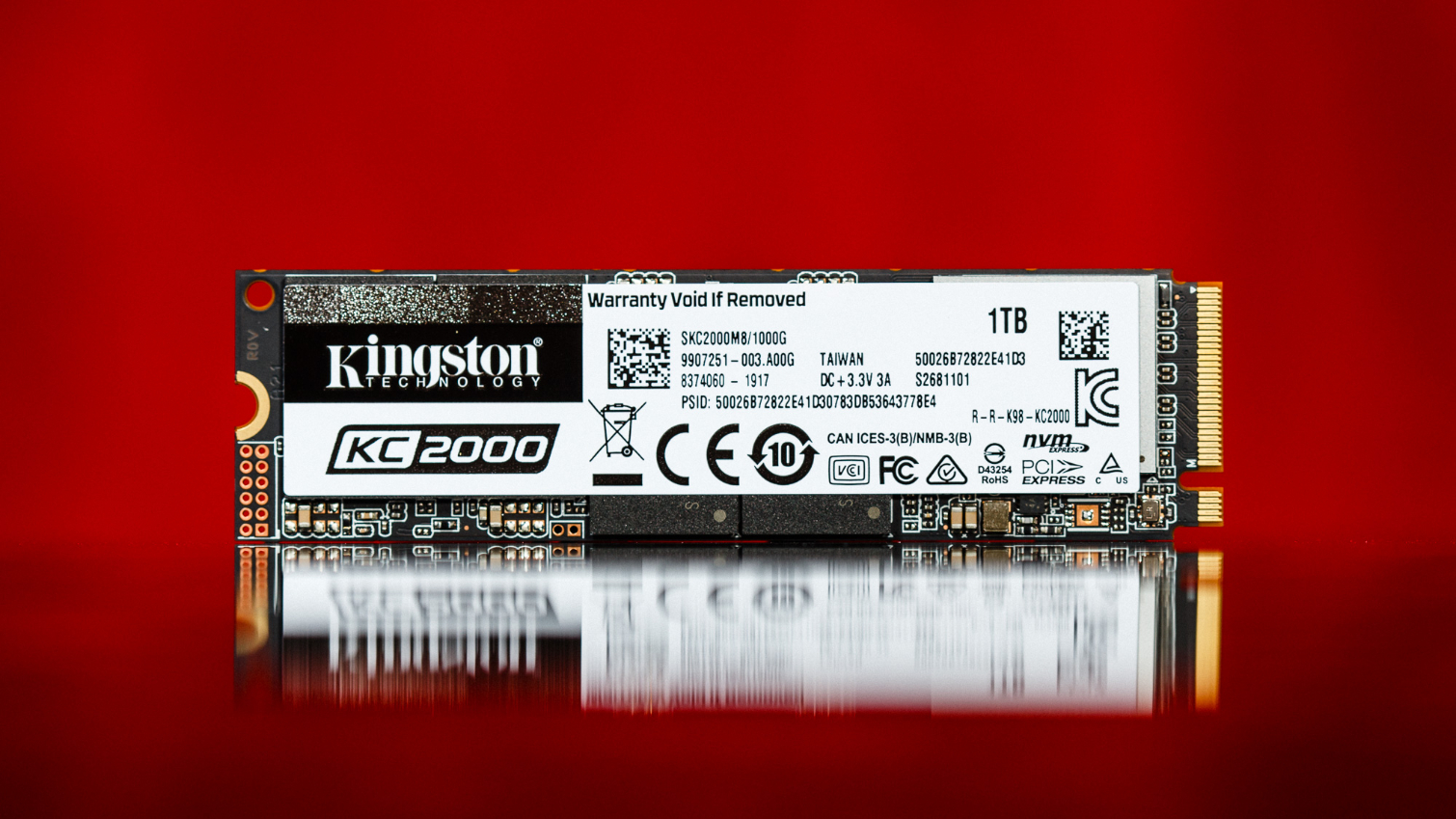
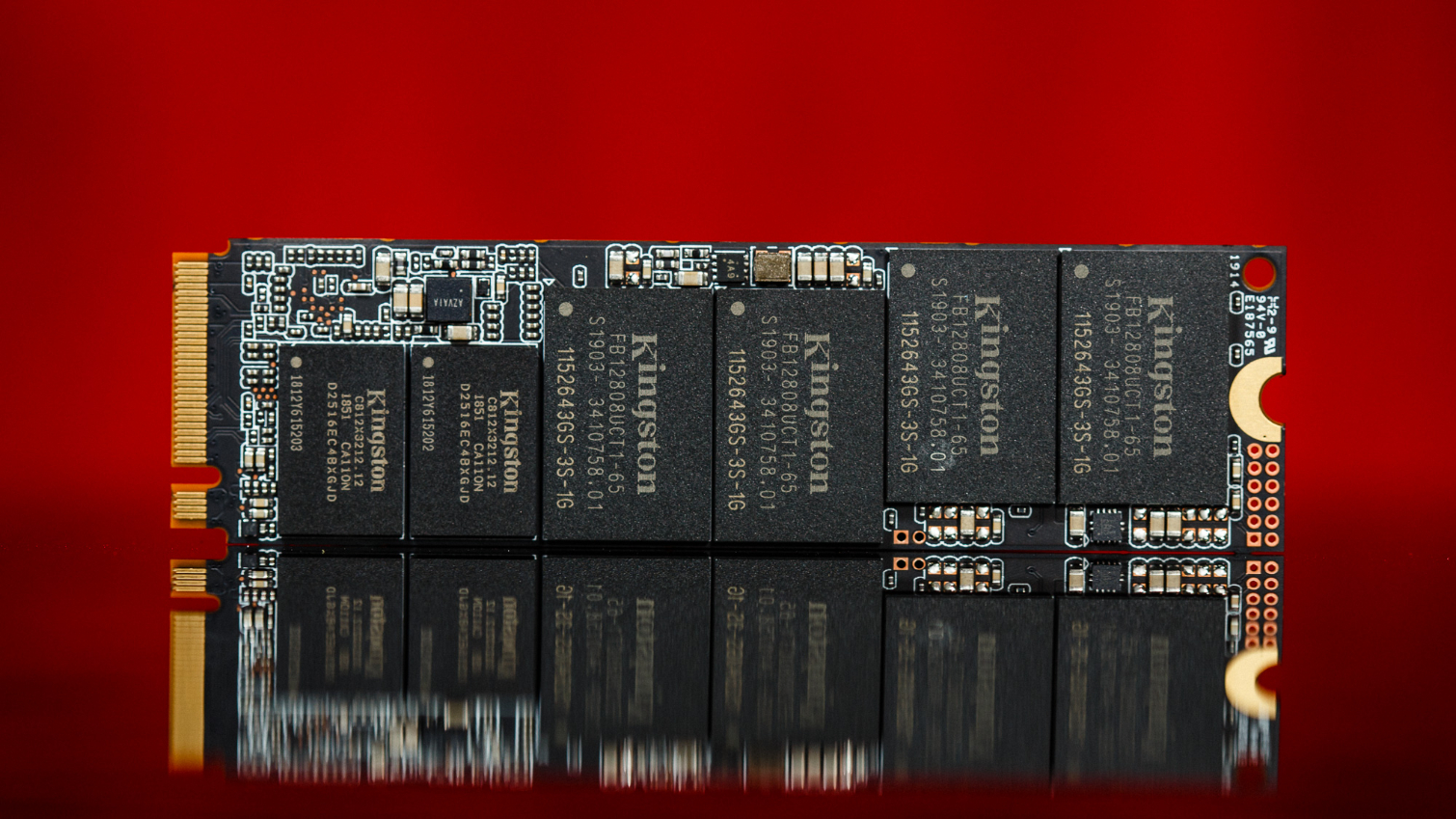
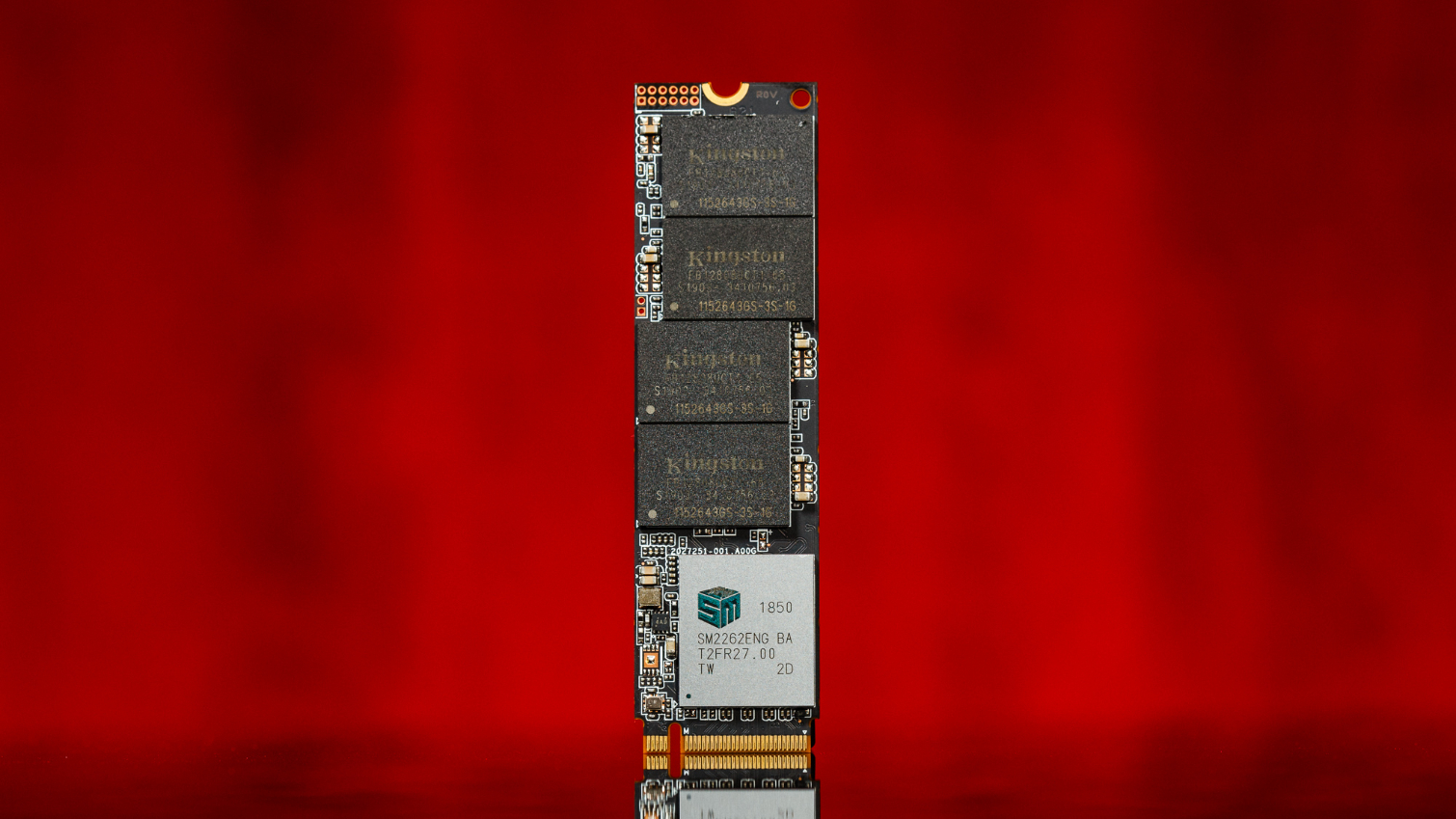
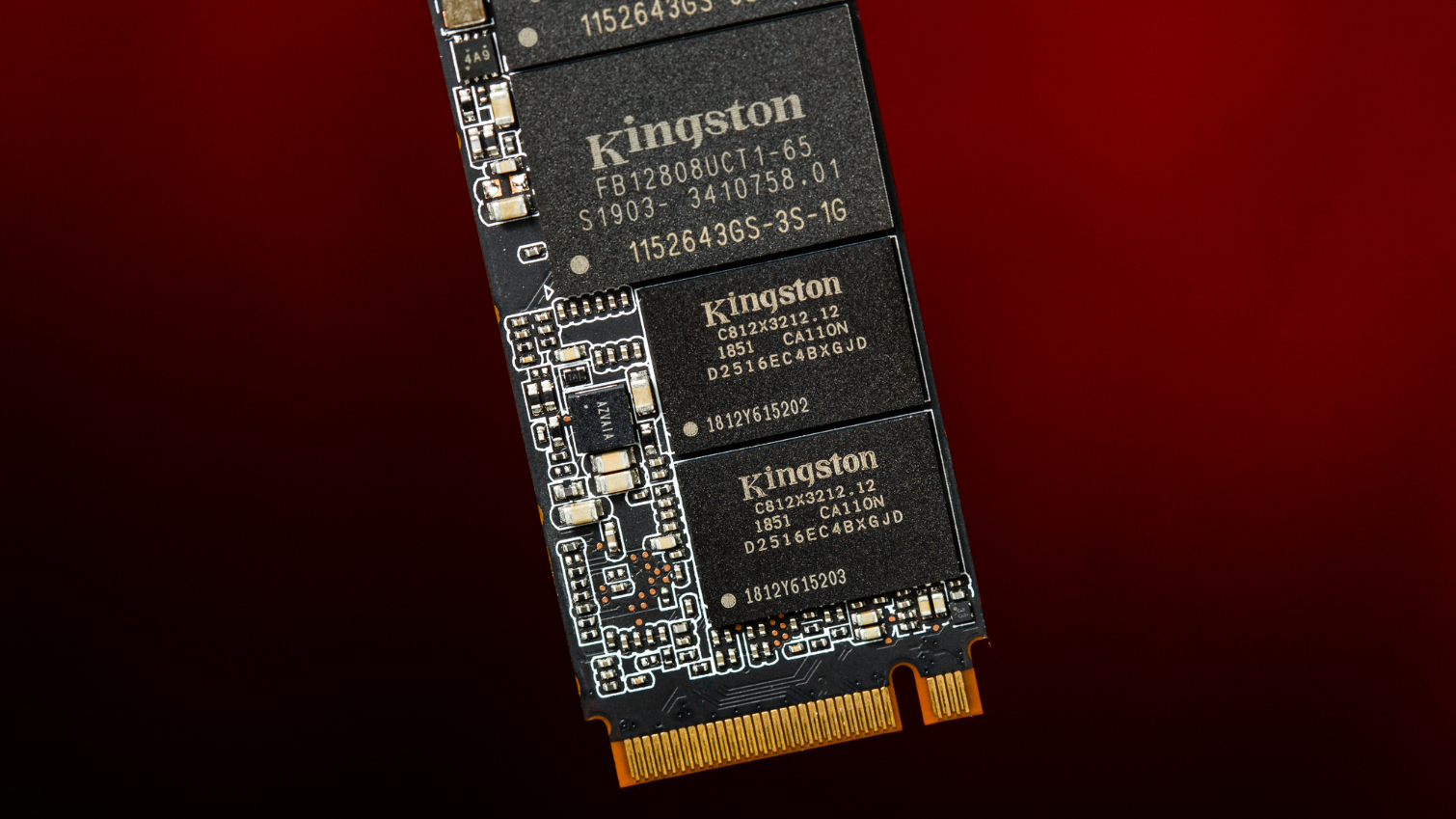
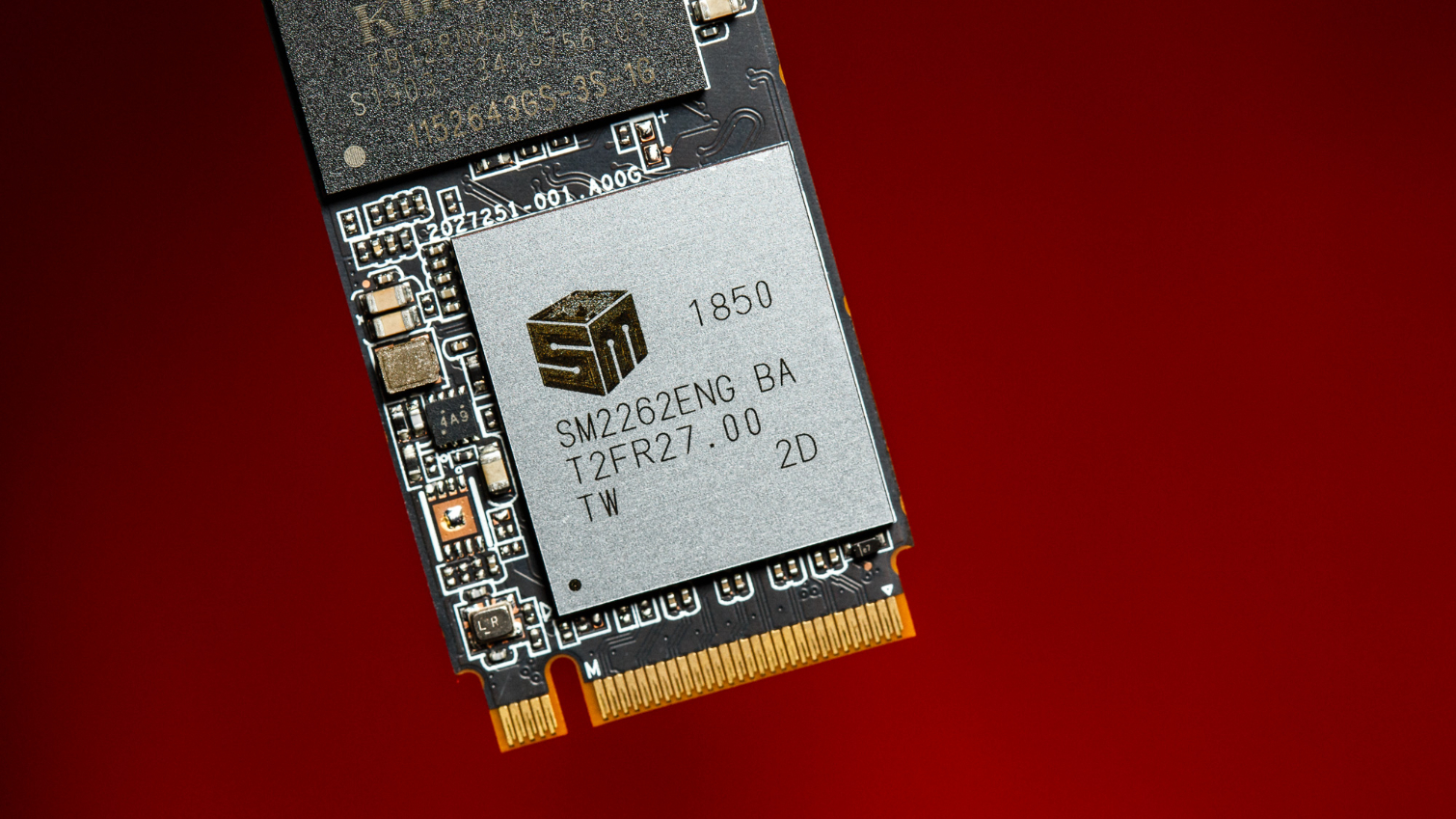
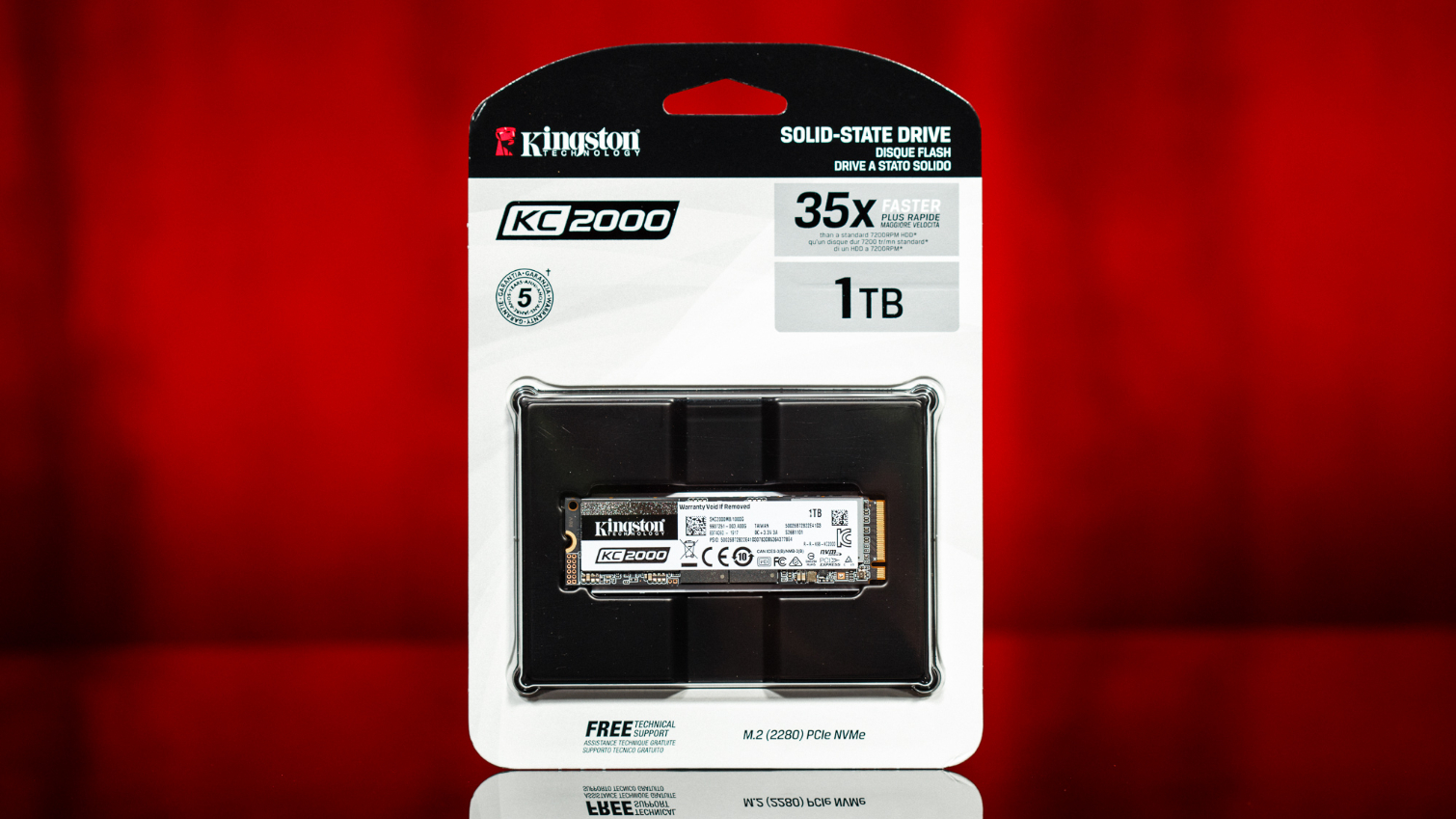
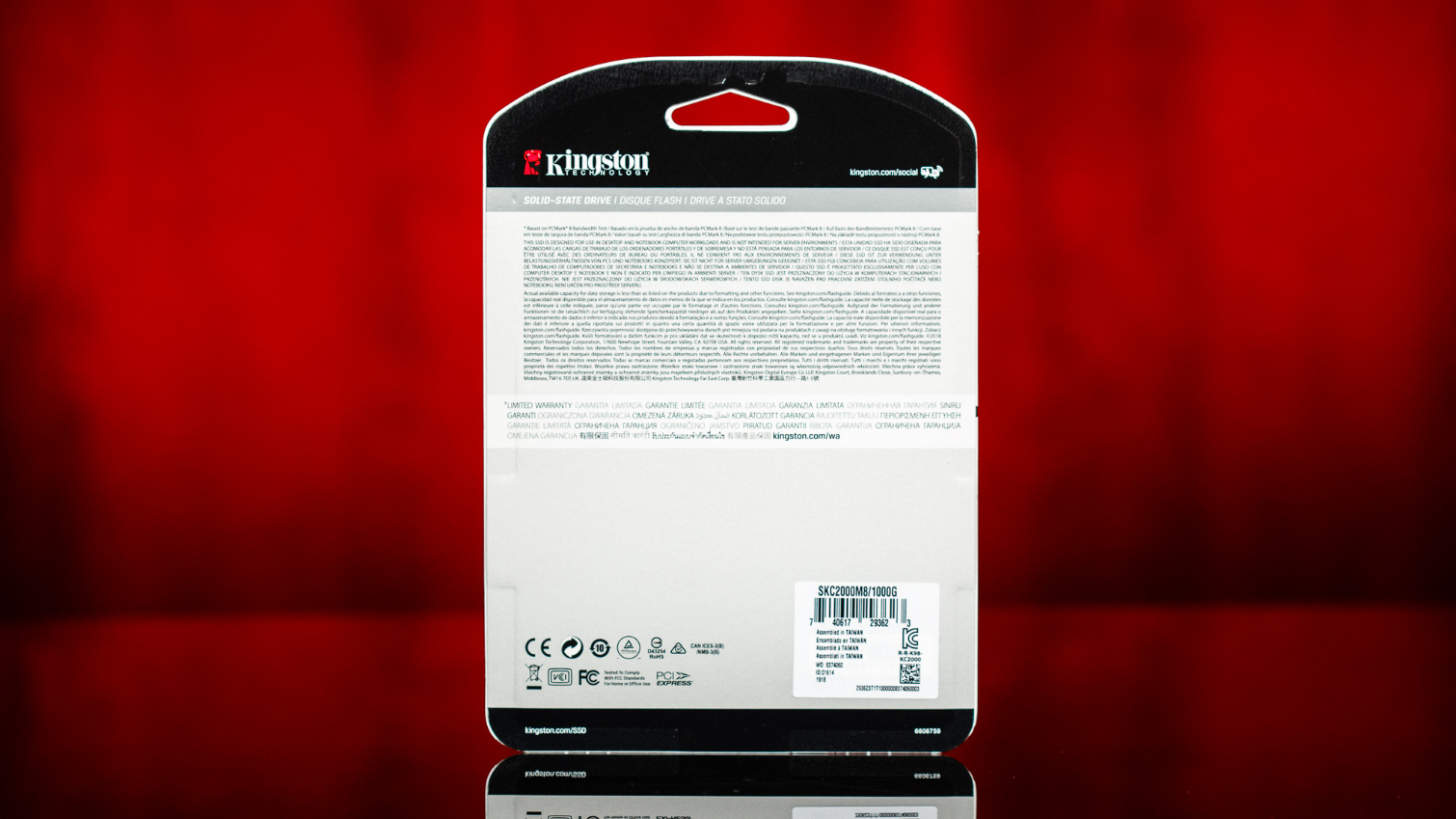
Kingston’s KC2000 comes in an M.2 2280 form factor and has a black PCB. It features a PCIe 3.0 x4 connection to the host and communicates with the latest NVMe 1.3 protocol.
There are a lot of components on the PCB, so many, in fact, that the 1TB sample we're reviewing is double-sided, meaning components are on both sides of the PCB. In addition to the latest SMI 2262EN NVMe controller, there are two DDR3L DRAM and eight NAND packages. Kingston assembles the flash packages, but Toshiba’s latest 96-Layer 3D BiCS4 TLC flash lurks within.
MORE: Best SSDs
MORE: How We Test HDDs And SSDs
MORE: Best External Hard Drives and SSDs
MORE: All SSD Content

Sean is a Contributing Editor at Tom’s Hardware US, covering storage hardware.
